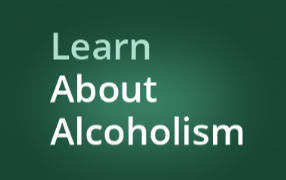Alcoholism and Women
This article explores the relationship between alcoholism and women. We will discuss the causes of alcoholism in women, as well as the resulting health issues women alcoholics face.
Women and Alcoholism – Contributing Factors
Estimates state that there are nearly 5 million alcohol-dependent women in the United States alone. It’s important to stress that alcoholism is a very complex disease that typically has more than one cause/contributing factor. How these causes and factors come together in each person is wholly unique to that individual.
Hormonal: For many women alcohol abuse begins with hormonal changes, typically during perimenopause. As the body changes, it creates stress and emotional trauma that’s among the causes of alcoholism in women.
Alcohol Processing: Men do not get drunk as quickly as women, because a woman’s body doesn’t process alcohol the same way. More alcohol goes into a female’s blood, which may in turn become one of the causes of alcoholism in women. Additionally, studies reveal that men don’t become addicted as quickly as women.
Self Medication: Depression and other emotional issues contribute to alcoholism in women, particularly those who binge drink (4 or more drinks in under 2 hours). Quite simply, some women use alcohol to offset negative feelings (some of which may have other physical causes that go undiscovered because of the self-medicating with alcohol).
Genetics: As with men, a woman with family members who were alcoholics has a stronger chance of becoming an alcoholic herself.
Stress & Environment: Women are prone to heavier drinking when they’re under stress, or when factors in their environment cause anxiety, nervousness, insecurity, and self doubt. For example, unmarried women are more likely to become dependent than married or widowed women. Stress and environmental factors alone will not cause a woman to become an alcoholic, but drinking as a result of either can cause more stress (and lead to alcohol abuse).

Alcoholism and Women: Health Issues
Premature Menopause: We know that perimenopause is one of the  causes of alcoholism in women. And if a woman begins heavy drinking during this time it could shorten the time until complete menopause by up to 5 years. Additionally it may increase the intensity of hot flashes and sleeplessness associated with this period in life.
causes of alcoholism in women. And if a woman begins heavy drinking during this time it could shorten the time until complete menopause by up to 5 years. Additionally it may increase the intensity of hot flashes and sleeplessness associated with this period in life.
Cancer Risk: Alcohol has been linked to an increase risk of breast cancer in menopausal women by as much as 50%
Calcium Loss: Menopausal women already loose a lot of calcium, but alcohol consumption increases this, which in turn exasperates the risk of osteoporosis.
Other Health Issues: In addition, women who drink heavily increase their chances of getting heart disease, memory loss, and having reproductive difficulties. Studies of alcoholism and women show that women alcoholics have more health risks then men who drink heavily.
Link here for Women and Sobriety
Pregnancy:
A woman who drinks during pregnancy (and/or while nursing) passes along that alcohol content directly to her fetus. This may result in birth defects or Fetal Alcohol Spectrum Disorder, a condition that can impact the child mentally, physically, and emotionally.
Conclusion: Alcoholism and Women
There is no question that drinking can have serious impacts on a woman’s life. Women who drink heavily face numerous potential illnesses and issues, far more so than men who drink the same amount. There is help out there from a variety of support services, your personal physician and this website.

I am a Mental Health Counselor who is licensed in both New York (LMHC) and North Carolina (LCMHC). I have been working in the Mental Health field since 2015. I have worked in a residential setting, an outpatient program and an inpatient addictions program. I began working in Long Island, NY and then in Guelph, Ontario after moving to Canada. I have since settled in North Carolina. I have experience working with various stages of addiction, depression, anxiety, mood disorders, trauma, stages of life concerns and relationship concerns.
I tend to use a person-centered approach which simply means that I meet you where you are and work collaboratively to help you identify and work towards accomplishing goals. I will often pull from CBT when appropriate. I do encourage use of mindfulness and meditation and practice these skills in my own life. I believe in treating everyone with respect, sensitivity and compassion.
I recognize that reaching out for help is hard and commend you for taking the first step. We have professionals available who would be happy to help you move closer to reaching your goals related to your drinking concerns. You may reach these professionals by calling 877-322-2694.
